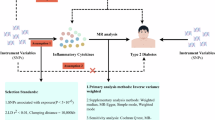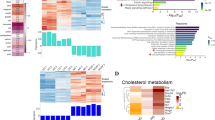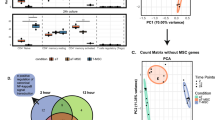Abstract
CXCL14 is a chemokine that has previously been implicated in insulin resistance in mice. In humans, the role of CXCL14 in metabolic processes is not well established, and we sought to determine whether CXCL14 is a risk susceptibility gene important in fetal programming of metabolic disease. For this purpose, we investigated whether CXCL14 is differentially regulated in human umbilical cords of infants with varying birth weights. We found an elevated expression of CXCL14 in human low birth weight (LBW) cords, as well as in cords from nutritionally restricted Macaca fascicularis macaques. To further analyze the regulatory mechanisms underlying the expression of CXCL14, we examined CXCL14 in umbilical cord-derived mesenchymal stem cells (MSCs) that provide an in vitro cell-based system amenable to experimental manipulation. Using both whole frozen cords and MSCs, we determined that site-specific CpG methylation in the CXCL14 promoter is associated with altered expression, and that changes in methylation are evident in LBW infant-derived umbilical cords that may indicate future metabolic compromise through CXCL14.
Similar content being viewed by others
Log in or create a free account to read this content
Gain free access to this article, as well as selected content from this journal and more on nature.com
or
References
Barouki, R., Gluckman, P. D., Grandjean, P., Hanson, M. & Heindel, J. J. Developmental origins of non-communicable disease: implications for research and public health. Environ. Health. 11, 42 (2012).
Hanson, M. A. & Gluckman, P. D. Developmental origins of health and disease: moving from biological concepts to interventions and policy. Int. J. Gynaecol. Obstet. 115, Suppl 1, S3–S5 (2011).
Godfrey, K. M., Sheppard, A., Gluckman, P. D., Lillycrop, K. A., Burdge, G. C., McLean, C. et al. Epigenetic gene promoter methylation at birth is associated with child's later adiposity. Diabetes 5, 1528–1534 (2011).
Soh, S. E., Tint, M. T., Gluckman, P. D., Godfrey, K. M., Rifkin-Graboi, A., Chan, Y. H. et al. Cohort profile: Growing Up in Singapore Towards healthy Outcomes (GUSTO) birth cohort study. Int. J. Epidemiol. (e-pub ahead of print 2 August 2013; doi:10.1093/ije/dyt125).
Stünkel, W., Pan, H., Chew, S. B., Tng, E., Tan, J. H., Chen, L. et al. Transcriptome changes affecting Hedgehog and cytokine signalling in the umbilical cord: implications for disease risk. PLoS ONE 7, e39744 (2012).
Hara, T. & Tanegashima, K. Pleiotropic functions of the CXC-type chemokine CXCL14 in mammals. J. Biochem. 151, 469–476 (2012).
Hara, T. & Nakayama, Y. CXCL14 and insulin action. Vitam. Horm. 80, 107–23 (2009).
Takahashi, M., Takahashi, Y., Takahashi, K., Zolotaryov, F. N., Hong, K. S., Iida, K. et al. CXCL14 enhances insulin-dependent glucose uptake in adipocytes and is related to high-fat diet-induced obesity. Biochem. Biophys. Res. Commun. 364, 1037–1042 (2007).
Nara, N., Nakayama, Y., Okamoto, S., Tamura, H., Kiyono, M., Muraoka, M. et al. Disruption of CXC motif chemokine ligand-14 in mice ameliorates obesity-induced insulin resistance. J. Biol. Chem. 282, 30794–30803 (2007).
Fong, C. Y., Subramanian, A., Biswas, A., Gauthaman, K., Srikanth, P., Hande, M. P. et al. Derivation efficiency, cell proliferation, freeze-thaw survival, stem-cell properties and differentiation of human Wharton’s jelly stem cells. Reprod. Biomed. 21, 391–401 (2010).
Sukarieh, R., Joseph, R., Leow, S. C., L, Y., Löffler, M., Aris, I. A. et alMolecular pathways reflecting poor intrauterine growth are found in Wharton’s jelly derived mesenchymal stem cells. Hum. Reprod. (in press).
Bauer, S. A., Arndt, T. P., Leslie, K. E., Pearl, D. L. & Turner, P. V. Obesity in rhesus and cynomolgus macaques: a comparative review of the condition and its implications for research. Comp. Med. 61, 514–526 (2011).
Tessema, M., Klinge, D. M., Yingling, C. M., Do, K., Van Neste, L. & Belinsky, S. A. Re-expression of CXCL14, a common target for epigenetic silencing in lung cancer, induces tumor necrosis. Oncogene 29, 5159–5170 (2010).
Song, E. Y., Shurin, M. R., Tourkova, I. L., Gutkin, D. W. & Shurin, G. V. Epigenetic mechanisms of promigratory chemokine CXCL14 regulation in human prostate cancer cells. Cancer Res. 70, 4394–4401 (2010).
Komori, R. 1, Ozawa, S., Kato, Y., Shinji, H., Kimoto, S. & Hata, R. Functional characterization of proximal promoter of gene for human BRAK/CXCL14, a tumor-suppressing chemokine. Biomed. Res. 31, 123–131 (2010).
Kurth, I., Willimann, K., Schaerli, P., Hunzike, T., Clark-Lewis, I. & Moser, B. Monocyte selectivity and tissue localization suggests a role for breast and kidney-expressed chemokine (BRAK) in macrophage development. J. Exp. Med. 194, 855–861 (2001).
Schaerli, P., Willimann, K., Ebert, L. M., Walz, A. & Moser, B. Cutaneous CXCL14 targets blood precursors to epidermal niches for Langerhans cell differentiation. Immunity 23, 331–342 (2005).
Tanegashima, K., Okamoto, S., Nakayama, Y., Taya, C., Shitara, H., Ishii, R. et al. CXCL14 deficiency in mice attenuates obesity and inhibits feeding behavior in a novel environment. PLoS One 5 (2010).
Gluckman, P. D. & Hanson, M. A. Maternal constraint of fetal growth and its consequences. Semin. Fetal Neonatal Med. 9, 419–425 (2004).
Gluckman, P. D. & Hanson, M. A. The consequences of being born small - an adaptive perspective. Horm. Res. 65 (Suppl 3), 5–14 (2006).
Kerkhof, G. F. & Hokken-Koelega, A. C. Rate of neonatal weight gain and effects on adult metabolic health. Nat. Rev. Endocrinol. 8, 689–692 (2012).
Meas, T., Deghmoun, S., Armoogum, P., Alberti, C. & Levy-Marchal, C. Consequences of being born small for gestational age on body composition: an 8-year follow-up study. J. Clin. Endocrinol. Metab. 93, 3804–3809 (2008).
Barker, D. J., Gluckman, P. D., Godfrey, K. M., Harding, J. E., Owens, J. A. & Robinson, J. S. Fetal nutrition and cardiovascular disease in adult life. Lancet 341, 938–941 (1993).
Batsali, A. K., Kastrinaki, M. C., Papadaki, H. A. & Pontikoglou, C. Mesenchymal stem cells derived from Wharton’s Jelly of the umbilical cord: biological properties and emerging clinical applications. Curr. Stem Cell Res. Ther. 8, 144–155 (2013).
Gluckman, P. D., Hanson, M. A. & Low, F. M. The role of developmental plasticity and epigenetics in human health. Birth Defects Res. C Embryo Today 93, 12–18 (2011).
Singh, V., Sharma, P. & Capalash, N. DNA methyltransferase-1 inhibitors as epigenetic therapy for cancer. Curr. Cancer Drug Targets. 13, 379–399 (2013).
Acknowledgements
We are grateful for the expert technical assistance of Rachel Chew, Tan Li Hua and Yhee Cheng Chng. We thank Professor Kenneth Kwek and the GUSTO study group for enabling the collection of umbilical cord tissue. This work is supported by the Translational Clinical Research (TCR) Flagship Program on Developmental Pathways to Metabolic Disease funded by the National Research Foundation (NRF) and administered by the National Medical Research Council (NMRC), Singapore (NMRC/TCR/004-NUS/2008). SICS Investigators are supported through Agency for Science Technology and Research (A*STAR) funding.
Author information
Authors and Affiliations
Corresponding author
Ethics declarations
Competing interests
The authors declare no conflict of interest.
Additional information
Supplementary Information accompanies the paper on Journal of Human Genetics website
Rights and permissions
About this article
Cite this article
Cheong, C., Chng, K., Lim, M. et al. Alterations to DNA methylation and expression of CXCL14 are associated with suboptimal birth outcomes. J Hum Genet 59, 504–511 (2014). https://doi.org/10.1038/jhg.2014.63
Received:
Revised:
Accepted:
Published:
Issue date:
DOI: https://doi.org/10.1038/jhg.2014.63
This article is cited by
-
Transcriptome analysis of adenomyosis eutopic endometrium reveals molecular mechanisms involved in adenomyosis-related implantation failure and pregnancy disorders
Reproductive Biology and Endocrinology (2024)



